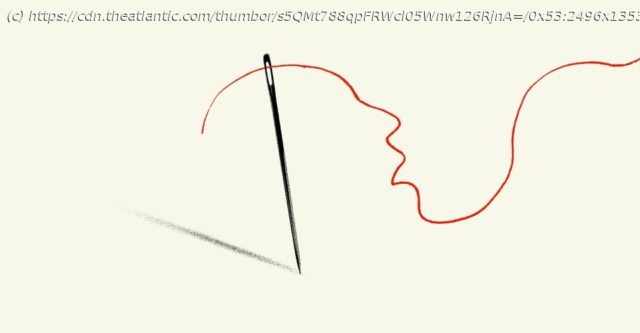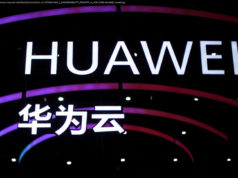Washington’s push against Beijing’s human-rights abuses could have more of an impact than tariffs or trade wars.
Executives at the fashion brand Eileen Fisher are no strangers to China—or to its enormous benefits and dangerous pitfalls: The American outfitter began manufacturing its clothing there about a quarter century ago, but last year, it realized that working in China could no longer be business as usual. The catalyst was Beijing’s repression of China’s Uyghurs in the far-west province of Xinjiang. A series of reports exposed horrific abuses of the Muslim minority group, including mass detentions, torture, and forced labor in factories and fields. “There are some issues that that’s it, you draw the line, and forced labor is one of those,” Amy Hall, Eileen Fisher’s social-consciousness strategic adviser, told me. What Hall and her colleagues did next highlights a generally unrecognized factor that is reshaping China’s role in the global economy: its human-rights record. Starting in early 2020, Eileen Fisher launched its most rigorous investigation ever into its Chinese supply chain. Like many brands, it tended to deal directly with only a handful of factories, primarily those stitching and knitting the shirts, sweaters, and other shelf-ready clothes Eileen Fisher sells. Behind those stretched a pyramid of other factories—yarn spinners, fabric weavers, dye houses, and so on—with which Eileen Fisher had minimal contact. The company had been monitoring its direct suppliers for any abuses, but this time it inspected every stop on the chain—24 firms in all—not just for signs of forced labor but for any connection to Xinjiang. None of its suppliers, Eileen Fisher decided, could use any products from Xinjiang or have operations there. The brand enlisted specialized researchers to dissect financial records and other public documents, searching for shareholdings or other linkages to the region. So far, Eileen Fisher has excised only one red-flagged supplier from its network (though there was no evidence of wrongdoing, or any direct links to Xinjiang). Perhaps more important than the result of the investigation, however, is the mere fact that an investigation was carried out at all, revealing the new reality that countless international companies producing and selling in China face. The long-standing tension between the lure of China’s riches and revulsion over its authoritarian practices is escalating sharply, raising the costs, risks, and hurdles involved in doing business there. Companies are getting squeezed between the Beijing government, which is not just more repressive but overtly unapologetic about it, and Washington politicians, who are more vociferously critical of China’s behavior and more intent on countering it. The complexity of navigating this expanding minefield has the potential to disentangle China’s economy from that of the United States and other countries to a degree that tariffs, trade wars, and diplomatic temper tantrums have not. C hina’s human-rights abuses aren’t new, nor are the hassles they have routinely created for global companies. Labor activists, for instance, have regularly accused the Chinese factories that supply international firms of treating workers poorly, leaving major brands scrambling to repair sullied reputations. Several countries, including the U.S., imposed economic sanctions on China after the massacre of prodemocracy protesters at Tiananmen Square in 1989. For the most part, though, chief executives have been able to invest, manufacture, and market in China unimpeded by human-rights issues. The U.S. government complained about Beijing’s suppression of dissent and individual rights, but not enough to hamper the flows of capital and trade. After all, many in Washington believed, the bonds of business would eventually soften the harsh Communist regime. Chinese authorities, meanwhile, whined that criticism amounted to “interference” in their domestic affairs but were too desperate for foreign capital and technology to do much more. In certain respects, this remains the case. U.S. investment in China has stayed more or less stable even as Beijing’s repression has intensified (though it did take a COVID-induced hit in 2020). “Of the people who are there now, I think very few of them think of China as optional,” Arthur Kroeber, the founding partner of the research firm Gavekal and a specialist in the Chinese economy, told me. “They consider China to be indispensable.” That calculation, though, is under strain. In recent years, Washington has armed its criticisms with real teeth. Some of the more stringent measures taken against China have been a response to human-rights issues.






